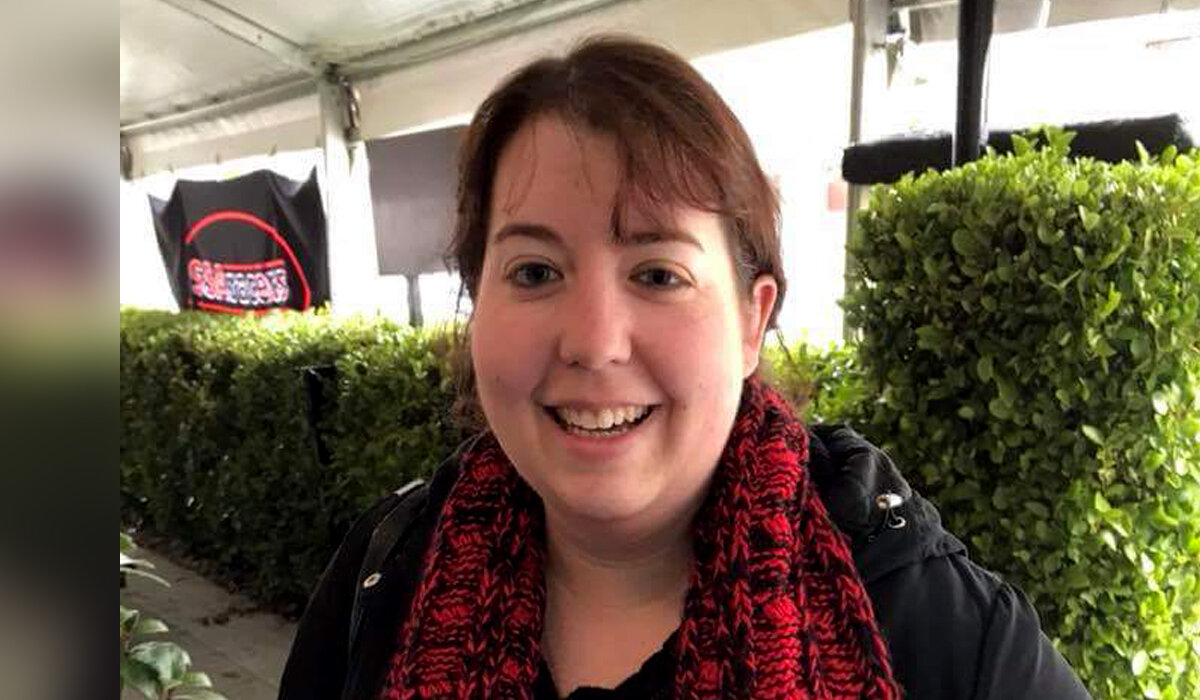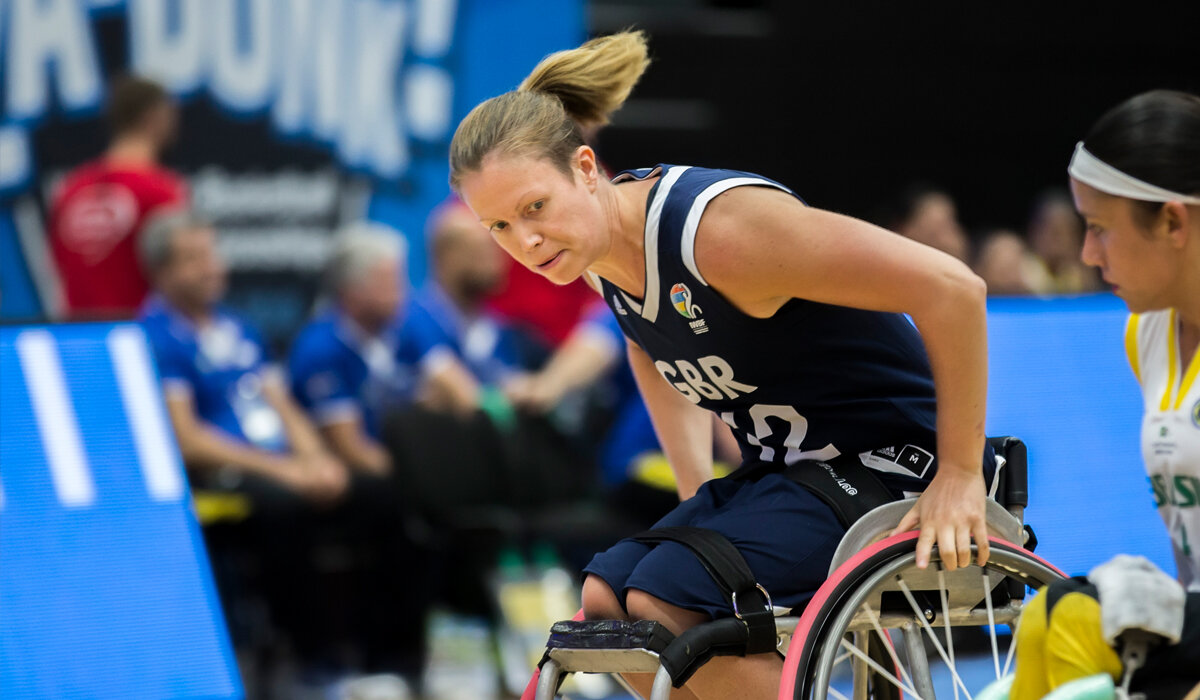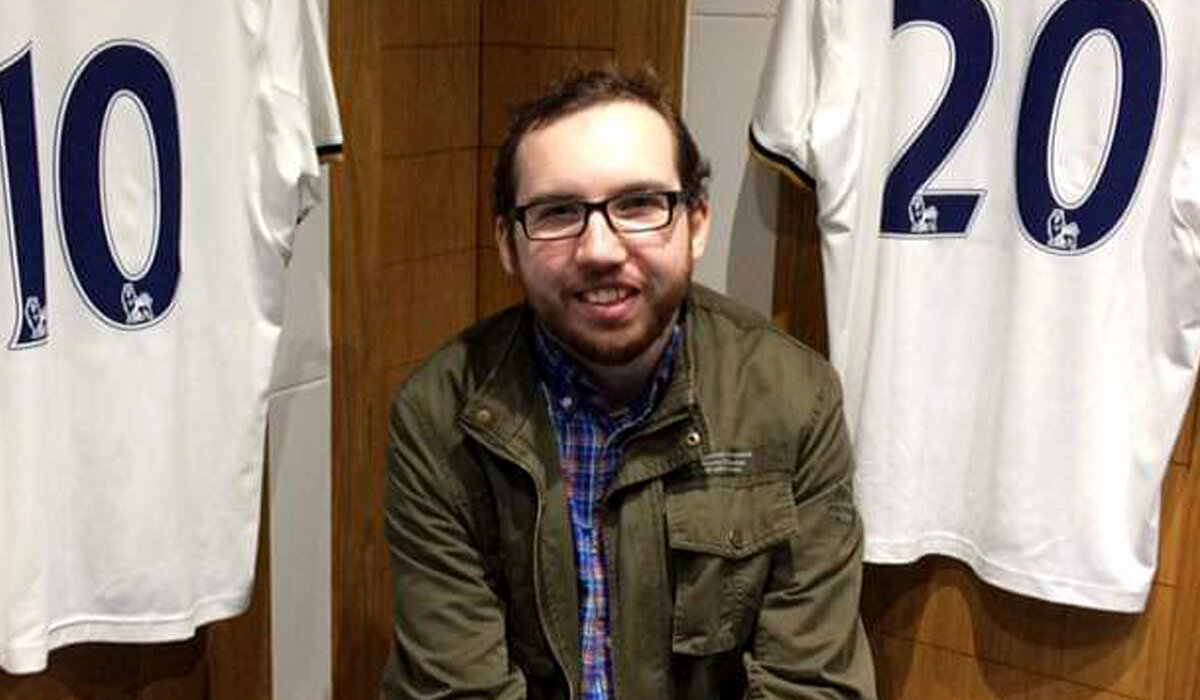
"I have a specific set of things I take to matches, as they ease my anxiety levels by being familiar and trusted."
Helen Ellis
- on being an autistic rugby fan
Stories from the Spectrum: Helen Ellis
In this Stories from the Spectrum interview, we spoke to Helen Ellis.
Meet Helen Ellis, an autistic rugby fan.
Helen is the Disabled Supporters representative for her rugby club, Saracens, and meets every couple of months to help make the match day experience better for all fans. She talks to us about her love of rugby, the barriers that an autistic person who wants to watch sports may face, and gives her tips for attending a match.
When were you diagnosed as autistic?
I started identifying as autistic at 15 after a conversation with my mother, who was an outreach support teacher. I wasn’t actually diagnosed until I was 21. In fact, the ten year anniversary of my autism diagnosis was in February, which I find poetic as it’s the tenth anniversary of the Autism Act later this year!
What is being autistic like for you?
Communication can be hard at times. Things can become overwhelming and disorientating if I can’t understand what’s going on. When I’m anxious or upset, I can lose my words and become non-verbal, or find I’m making people angry because I’ve misunderstood a comment someone has made.
Sensory overloads are definitely the most difficult part for me. Trying to make people understand why I am in pain from something they are doing is really tough, especially when they are doing “normal” things, like whistling or using hand cream.
When and how did you get into rugby?
Saracens are my home team in Hertfordshire and I vaguely recall meeting some of the players when they visited my school, as my form teacher knew them. As I grew older, live sport became a lot harder for me to access. Even watching on television was difficult, as I struggled with the anxiety of not knowing how the match would end.
Attending a match seemed out of the question for years. I tried a couple of times with matches at Twickenham and Wembley when I was in my early 20s, with family and close friends, but I found the environment really difficult and the after effects of sensory overload often lasted long into the following day. After the Six Nations in 2016, I wanted to try again, as I was older and a bit wiser about managing my sensory triggers.
What barriers might an autistic person who wants to watch sport face?
Any form of live sport brings a level of anxiety, as you don’t know at the start of the match whether your team will win, if there will be any injuries, any yellow or red cards or any scuffles or fights between players! There is also the unpredictable nature of the crowd. Are you sat near people who will be gracious victors or losers, people who are in an out of their seats the whole match, people who are loud and boorish, or a family full of bored kids? On top of all those considerations, there is also the sensory aspect, like being crammed tightly into slightly-too-small seats, the smell of burgers, beer by the metric tonne, or random tannoy announcements encouraging fans to start singing and chanting. Even the referee’s whistle can be painful. I try to get an end-of-row seat so I can easily escape if it gets too much.
As with everything in autistic life, preparation is key! I have a specific set of things that I wear and take to matches, as they ease my anxiety levels by being familiar and trusted.
"As with everything in autistic life, preparation is key! I have a specific set of things that I wear and take to matches, as they ease my anxiety levels by being familiar and trusted."

I plan far in advance for matches and count down the days and hours to kick off on a checklist, including things like looking up what football matches are happening nearby, as this can impact on trains and local pubs.
How do you think that sport stadiums can be made more accessible to autistic people?
Guides for the stadium would be a huge help for preparation! And not just “where’s the nearest bar?” Tell me whether there are hand dryers or paper towels in the toilets, let me know if the teams are going to be running out to fireworks, flame bursts or a brass band!
More consideration within stadiums would help massively too. This includes better signage, more accessible toilets and having a quiet room where I can still watch the game but in a muffled, peaceful environment. Some grounds have started to sacrifice a corporate box for this, but it’s often restricted to home fans only or seems to be just for children, so more recognition of travelling away fans being autistic adults would be great!
What advice would you give to autistic people who have never attended a sporting match before, but would like to go?
With the right preparation and support, going to a sporting match for the first time could be the best decision you ever make. I’ve seen my club thoroughly beaten on cold, miserable Friday nights and lift huge trophies in the blazing sunshine.
For your first time going to a sporting event, I would suggest trying to find a stadium you are familiar with and going with a friend you trust.
The fixture itself was a secondary thought for me, but for others the match might be an important part to get right. A local derby may be a really bad idea for some people, as they are often high pressure, intense emotion games, but that atmosphere might be what other people thrive on. Going solo can be scary, even after three years I occasionally get nervous being alone, but it can also give you freedom to wander a stadium and become familiar with it, to float in and out of conversations as you interact with people or simply to go straight to your seat without having to consider anyone else’s needs!
Helen reflects on her first ever rugby match here.
The Autism Friendly Award
We work with stadiums, shops and businesses to help make them autism-friendly.
Similar stories

"Being awarded Employee of the Year has been my proudest moment."
Leo Capella
- on winning our 2019 'Employee of Year' award
Read more

"I am over-sensitive to sensory stimuli, which can be difficult in a lot of aspects of life, not just basketball."
Sarah Hope
- on her experience of sensory differences
Read more

"In times of such difficulty, what football brings is enjoyment, reassurance and a pleasant distraction imbuing us with feelings of comfort and relief."
Jack Howes
- on his love of football
Read more

The Spectrum magazine
Explore one of the UK's largest collections of autistic art, poetry, and prose. The Spectrum magazine is created by and for autistic people, and is available both online and in print.
Read the Spectrum





You are not alone
Join the community
Our online community is a place for autistic people and their families to meet like-minded people and share their experiences.
Join today